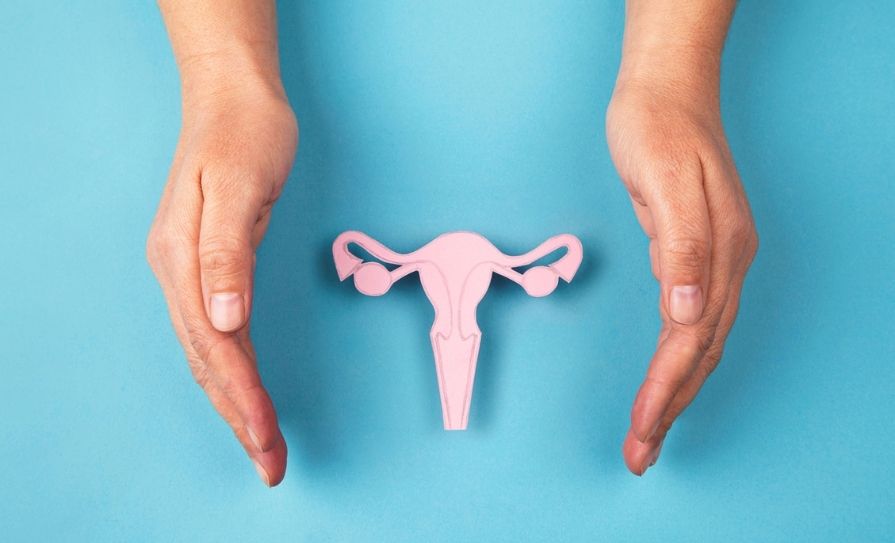PRISCILLA LYNCH
Best of ESC Congress 2020 – a completely digital experience
“ESC Congress 2020 was an event like no other – the best ground-breaking cardiovascular science in an entirely digital experience,” said Prof Marco Roffi, Chair of the European Society of Cardiology (ESC) Congress Programme Committee, following the four-day meeting’s successful conclusion on 1 September.
“For the first time in history, healthcare professionals around the world had the same, immediate access to knowledge shared at the leading cardiovascular meeting.”

With a record-breaking audience of more than 116,000 delegates from 211 countries, ESC Congress 2020 provided four days of live and on-demand scientific presentations covering the full spectrum of cardiovascular medicine. The 13 Hot Lines showcased the most highly awaited clinical trial results, and scientists from over 80 countries presented their research in more than 4,000 abstracts. Japan led the way with the most abstracts. At the latest count, 28 studies were simultaneously published in prestigious journals.
“Despite the challenges that Covid-19 has posed on the conduct of clinical trials, ESC Congress launched the results of major studies bringing innovation to the field of cardiology,” said Prof Silvia Priori, Chair of the ESC Congress Programme Committee.
“In addition to the Hot Lines, 43 late breaking clinical trials were available daily throughout the playlist and on-demand programme.
“Many of these studies have implications for clinical practice,” said Prof Priori.
“Notably BRACE CORONA, which found that antihypertensive therapy can be continued in Covid-19 patients. EAST-AFNET 4 provides important results that will impact the management of the increasing number of patients with atrial fibrillation.”
“I’m also excited about EXPLORER-HCM, which meets an unmet need for patients with obstructive hypertrophic cardiomyopathy,” said Prof Priori.
“For patients with chronic coronary disease, LoDoCo2 discovered how to repurpose an old drug, thereby providing innovation at an affordable cost. Among the new ESC Guidelines were the first ESC Guidelines on Sports Cardiology and Exercise in Patients with Cardiovascular Disease.”
“ESC Congress 2020 was a great success,” said Prof Barbara Casadei, outgoing ESC President. “It was good to see so many health professionals joining us for the first time from all over the world and the highest-ever proportion of female professionals following the meeting. More than half of participants were under 40 years of age. Critically at this time, we were reminded that cardiovascular disease is still the number one killer worldwide and that as a community we continue to make great strides to improve the lives of our patients.”
10-minute saliva tube test could quickly diagnose heart attack
A saliva test could fast track heart attack diagnosis, according to preliminary research presented at ESC Congress 2020.
The innovative technique requires patients to spit into a tube and provides results in 10 minutes, compared to at least one hour for the standard blood test.
“There is a great need for a simple and rapid troponin test for patients with chest pain in the pre-hospital setting,” said study author Dr Roi Westreich of Soroka University Medical Centre, Beer Sheva, Israel. “Currently troponin testing uses blood samples. In this preliminary study we evaluated the feasibility of a novel method using saliva.”
The purpose of the study was to see if cardiac troponin could be detected in the saliva of patients with heart muscle injury. Saliva samples underwent a unique processing procedure to remove highly abundant proteins. A total of 32 patients with heart muscle injury (ie, they had a positive cardiac troponin blood test) and 13 healthy volunteers were requested to provide saliva samples by spitting into a collecting tube. Then half of each sample was processed, and the other half remained in its natural state.
The researchers tested the processed and unprocessed saliva samples for cardiac troponin. “Since no test has been developed for use on saliva, we had to use commercially available tests intended for whole blood, plasma, or serum, and adjust them for saliva examination,” said Dr Westreich.
For patients, the researchers compared the results from the saliva samples (processed and unprocessed) with the blood samples. There was strong agreement between the blood findings and the processed saliva, but not saliva in its natural state. Some 84 per cent of the processed saliva samples tested positive for troponin, compared to just 6 per cent of the unprocessed saliva.
Among healthy participants, no cardiac troponin was detected in the processed and unprocessed saliva samples.
Dr Westreich said: “This early work shows the presence of cardiac troponin in the saliva of patients with myocardial injury. Further research is needed to determine how long troponin stays in the saliva after a heart attack. In addition, we need to know how many patients would erroneously be diagnosed with heart attack and how many cases would be missed.”
The next steps in this research are to expand the number of patients being studied and create a prototype for a cardiac troponin test using saliva.
EMPEROR-Reduced meets primary endpoint in heart failure with reduced ejection fraction
Empagliflozin reduces the risk of cardiovascular death or hospitalisation for heart failure in patients with heart failure and a reduced ejection fraction. That’s the finding of the EMPEROR-Reduced trial presented in a Hot Line session at the ESC Congress 2020 and published in the New England Journal of Medicine.
The EMPEROR-Reduced trial was designed to evaluate the effects of empagliflozin 10mg once daily (as compared with placebo) in patients with heart failure and a reduced ejection fraction, with or without diabetes, who were already receiving all appropriate treatments for heart failure.
The primary endpoint was the composite of cardiovascular death or hospitalisation for heart failure. Secondary endpoints included adverse renal outcomes, defined as chronic dialysis or renal transplant or sustained reduction of estimated glomerular filtration rate (eGFR).
By adjusting eligibility based on natriuretic peptide levels to the baseline ejection fraction, the trial preferentially enrolled higher risk patients, who had not been well-represented in earlier studies.
The trial enrolled 3,730 patients with heart failure and a left ventricular ejection fraction of 40 per cent or less, with or without diabetes. Patients were randomly assigned to empagliflozin 10mg once daily or placebo.
During a median follow-up of 16 months, the primary endpoint occurred in 361 patients in the empagliflozin group and 462 patients in the placebo group (hazard ratio [HR] 0.75; 95 per cent CI 0.65–0.86; p<0.0001). Empagliflozin reduced total hospitalisations for heart failure (HR 0.70; 95 per cent CI 0.58–0.85; p<0.001).
Adverse renal outcomes occurred in 30 patients in the empagliflozin group and 58 patients in the placebo group (HR 0.50; 95 per cent CI 0.32–0.77; p<0.01).
Uncomplicated genitourinary tract infections were more common in the empagliflozin group (1.3 per cent vs. 0.4 per cent), but the frequency of hypotension, volume depletion and hypoglycaemia were similar in the two groups.
Principal investigator Dr Milton Packer of Baylor University Medical Centre, Dallas, Texas said: “Empagliflozin reduced the risk of serious heart failure events by 30 per cent and decreased the risk of serious adverse renal outcomes by 50 per cent. This trial extends the benefits of SGLT2 inhibitors to higher risk patients and shows a meaningful benefit on renal outcomes in patients with heart failure for the first time.
“Based on the combined results of our trial (together with the earlier trial with dapagliflozin), we believe that SGLT2 inhibition with empagliflozin and dapagliflozin will now become a new standard of care for patients with heart failure and a reduced ejection fraction.”
Vaccines against respiratory infections linked with fewer heart failure deaths
Influenza and pneumonia vaccinations are associated with fewer hospital deaths in patients with heart failure, according to the results of a study in nearly three million Americans released during ESC Congress 2020.
While it is known that inoculations protect against respiratory infections, and that these infections exacerbate heart failure, few studies have compared outcomes of vaccinated versus unvaccinated patients. This study examined whether immunisations had any link with the risk of heart failure patients dying while in hospital.
The study included 2,912,137 patients with heart failure who had a hospital admission in 2010 to 2014. The average age was 70 years. Data were obtained from the National Inpatient Sample (NIS), which covers more than 95 per cent of the US population.
Just 1.4 per cent of patients in the study had the flu vaccine and 1.4 per cent had the pneumonia vaccine. The researchers compared in-hospital death rates between heart failure patients who received flu and pneumonia vaccinations that year and those who did not.
Rates of in-hospital mortality were significantly lower in patients who received the flu vaccine (1.3 per cent) compared to those who did not receive the flu vaccine (3.6 per cent). Similarly, rates of in-hospital mortality were significantly lower in patients inoculated against pneumonia (1.2 per cent) compared to those who were not inoculated (3.6 per cent).
“The Covid-19 pandemic has shone the spotlight on the importance of vaccination to prevent respiratory infections, particularly for people with diseases like heart failure,” said study author Dr Karthik Gonuguntla of the University of Connecticut.
Trial supports first specific treatment for obstructive hypertrophic cardiomyopathy
Mavacamten, a first-in-class cardiac myosin inhibitor that directly targets the underlying pathophysiology of hypertrophic cardiomyopathy (HCM), improves heart function and symptoms in patients with obstructive HCM, according to results of the EXPLORER-HCM trial presented in a Hot Line session at ESC Congress 2020.
“The results of this pivotal trial support a role for disease-specific therapy for HCM, which treats the cause instead of just managing symptoms,” said principal investigator Prof Iacopo Olivotto of Careggi University Hospital, Florence, Italy.
HCM affects approximately one-in-500 people. It is defined by left ventricular hypertrophy that cannot be explained by another cardiac or systemic disease. The majority of HCM patients have obstructive HCM, where a combination of cardiac hypertrophy, excess contractility and abnormal movement of the mitral valve blocks or reduces blood flow from the left ventricle to the aorta – called left ventricular outflow tract (LVOT) obstruction.
Common symptoms include dyspnoea, atypical chest pain, palpitations, fatigue, and feeling lightheaded or fainting. Some people have few or no symptoms. But for others, HCM is a debilitating and life-changing disease resulting in physical limitations and lower quality-of-life. In some patients, the left ventricular remodelling progresses to refractory heart failure.
Currently available medical treatments focus on symptom relief and fail to address the underlying causes of obstructive HCM. These non-specific agents often have modest efficacy or substantial side effects. Surgical septal myectomy and alcohol septal ablation are efficacious, but carry the risks inherent to invasive procedures and require specific expertise that is not always available. Therefore, an effective pharmacological therapy for obstructive HCM is an important unmet need.
In early clinical trials, treatment with mavacamten led to significant improvements of symptoms, physical function, exercise capacity, and quality-of-life, and reduced LVOT obstruction in patients with obstructive HCM.
EXPLORER-HCM was a pivotal, global, phase 3, randomised, placebo-controlled clinical trial that tested the efficacy and safety of mavacamten in treating symptomatic obstructive HCM. A total of 251 patients received once-daily mavacamten or placebo for 30 weeks. The endpoints were chosen to examine exercise capacity, symptoms, LVOT obstruction, functional status, and quality-of-life.
The primary endpoint assessed the treatment effect of mavacamten at week 30 relative to placebo on both symptoms and cardiac function. It was defined as achieving 1) ≥1.5mL/kg/min improvement in peak oxygen consumption (peak VO2) and ≥1 New York Heart Association (NYHA) class reduction OR 2) ≥3.0mL/kg/min improvement in peak VO2 and no worsening of NYHA class.
Secondary endpoints included change from baseline to week 30 in post-exercise LVOT gradient and patient-reported outcomes such as the Kansas City Cardiomyopathy Questionnaire-Clinical Summary Score (KCCQ-CSS) and HCM Symptom Questionnaire-Shortness-of-Breath (HCMSQ-SoB) subscore.
At week 30, 45 (36.6 per cent) patients on mavacamten met the primary composite endpoint versus 22 (17.2 per cent) on placebo (p=0.0005). All secondary endpoints, including post-exercise LVOT gradient and patient-reported outcomes, also demonstrated statistically significant improvements for mavacamten as compared to placebo (all p<0.0006).
Safety and tolerability with mavacamten were similar to placebo.












Leave a Reply
You must be logged in to post a comment.